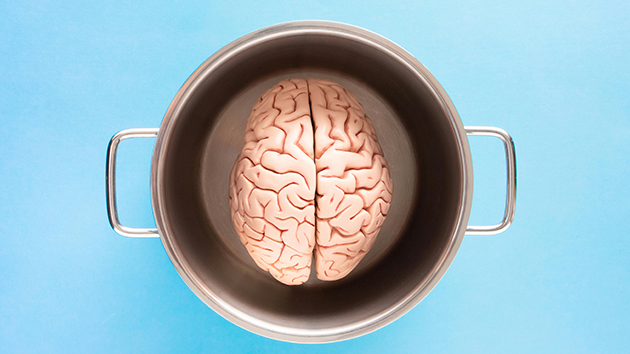26 September 2024|Dina Huapi, Argentina [Adriano Fabbricotti with tedNEWS]
Have you ever caught yourself scrolling on TikTok or Instagram for hours on end? Feeling guilty and yet somehow unable to stop? The good news is, you’re not alone, and it’s not entirely your fault! Social media is designed to be highly addictive, and overuse can hijack the brain’s reward system. If you want to know how to protect yourself, keep reading…
Designed to be Addictive
When we do things we enjoy, our brains release dopamine, a neurotransmitter that makes us feel good and causes us to seek more of that feeling. Both natural (healthy) and artificial (unhealthy) stimuli activate the brain’s reward system alike—such as physical exercise, eating a good meal, and talking with friends, but also sugary treats and illegal substances. If you keep doing the same things and feeling rewarded, your brain will remember it, creating stronger and stronger neural pathways. This is how habits are formed. But dopamine is not the only reason why social media is addictive; it was designed this way through a variety of manipulative tricks (some borrowed from the gambling industry):
- Unpredictable, variable rewards: In order to learn, we need to be able to predict the outcome of a situation. For example, “when I drop a pencil, it makes a ‘clack’ sound against the floor.” When it comes to social media, however, you never know what is going to happen. Perhaps your picture received 1,000 likes, perhaps none. Maybe your reel went viral, maybe it barely made a splash. Maybe the pencil will make a noise, maybe it will levitate. And because we do not know, we keep coming back. The unpredictability of the rewards is not an accident—it is there on purpose, to make us come back, again and again.
- A personalised, perfectly targeted stimulus: Social media platforms use advanced algorithms that personalise your experience, displaying content meticulously selected to maximise your engagement and monopolise your attention. These algorithms “learn” from your previous interactions, adapting to offer an increasingly rewarding stimulus.
- A reinforcing nature: Constant notifications act as small dopamine triggers, disrupting daily activities and forcing us to return to the platform. ‘Likes’ and other indicators of social approval are particularly powerful because they tap into our need for acceptance and validation.
Your Brain on Social Media
Heavy social media use can lead to significant changes in neuroplasticity—your brain’s ability to change and be malleable, which has a big effect on your attention and cognitive function. This is especially true during adolescence, a critical period for brain development. Additionally, excessive use can affect the development of the prefrontal cortex, the brain region associated with decision-making, planning, and emotional regulation. Sadly, that is not all. The “cheap dopamine” that social media delivers can contribute to the desensitisation of dopamine receptors, reducing our ability to enjoy experiences that are otherwise fun, pleasurable, and satisfying.

Strategies to Regain Control
Moderate use of social media can be fun! But, because it was designed to provide us with cheap dopamine, it is quite hard to keep it balanced and very easy to get addicted. Below are some strategies that can help you regain control:
- Regulate social media use: It is incredibly hard by willpower alone not to waste time on your smartphone, so it’s better to have a plan. You can create a family media plan (including online safety guidelines), set time limits, and disable notifications to avoid overexposure.
- Prioritise offline and analogue activities: Be intentional in participating in activities that do not rely on technology and contribute to mental well-being. Pick up an old-fashioned analogue hobby like reading or exercising. Hang out with friends, and agree you’ll disable notifications while you are together.
- Invest time in social media education: Learn more about the mechanisms that social media uses to capture our attention, and the consequences. Find reliable sources to manage the risks and protect young users.
- Try a dopamine fast: Take regular breaks from social media use. Consider a technological Sabbath that could reset your dopaminergic system and restore your ability to enjoy simpler, healthier pleasures.
Adriano Fabbricotti is a medical doctor based in Bariloche, Argentina. This article has been adapted from his research and presentation at the Dina Huapi Seventh-day Adventist Church in Río Negro, Argentina. It was translated and adapted by Vanesa Pizzuto.
[Photos: Kampus Production & Amel Uzunovic, Pexels]



